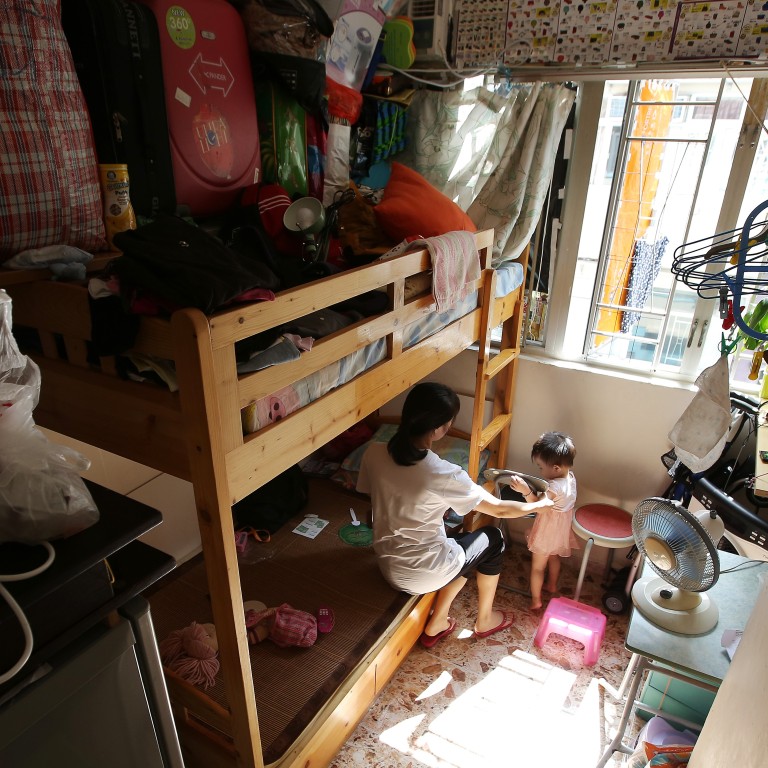
Be flexible on help for low-income families
- Households in subdivided flats are to be offered subsidies to improve their living environment, but the government should not be rigid over what the money is spent on or when
Our hot and humid summers highlight the plight of people who swelter in cramped, subdivided flats. The 2016 by-census put their number at nearly 210,000 in about 92,000 households. Many are forced to seek refuge in fast-food outlets and other escapes that offer a better chance of restful sleep or concentrating on homework for an education that might break the cycle of poverty.
They are among the victims of Hong Kong’s housing crisis that most deserve help. Because rent subsidies tempt landlords to raise rents, there is a case for devising welfare aid that helps tenants help themselves.
Secretary for Labour and Welfare Law Chi-kwong, for one, believes in it. He has unveiled a HK$290 million, two-year trial plan under which some 24,000 low-income households in subdivided flats would be given a one-off payment of up to HK$10,000 for improvements, furniture or equipment and pest-control services. Law said this was better than rent, electricity and water subsidies which, while temporarily relieving financial pressure, would eventually go into the pockets of landlords.
HK$290 million plan to improve living conditions for those in subdivided flats
But some experts are unconvinced, including Lai Kin-kwok, convenor of the Platform Concerning Subdivided Flats in Hong Kong. Rather than new furniture, he said, the ability to pay rent was paramount, otherwise families would have to make other sacrifices, such as skipping meals.
Sadly, Lai’s take on the issue has a ring of truth to it. At a meeting of the Legislative Council’s home affairs panel, lawmakers asked for greater flexibility and took issue with the government dictating what the needy could use the subsidy for under the guidance of NGOs.
Labour Party legislator Fernando Cheung Chiu-hung said the money could go to waste if landlords did not agree to improvements. But Law said the purpose of the proposed subsidy was to help improve the living environment.
Given the link between poverty and accommodation costs, Law’s initiative is worth trying. For the sake of flexibility, perhaps tenants could be given the opportunity to spread out the spending on improvements negotiated at the best price with the help of NGOs.

